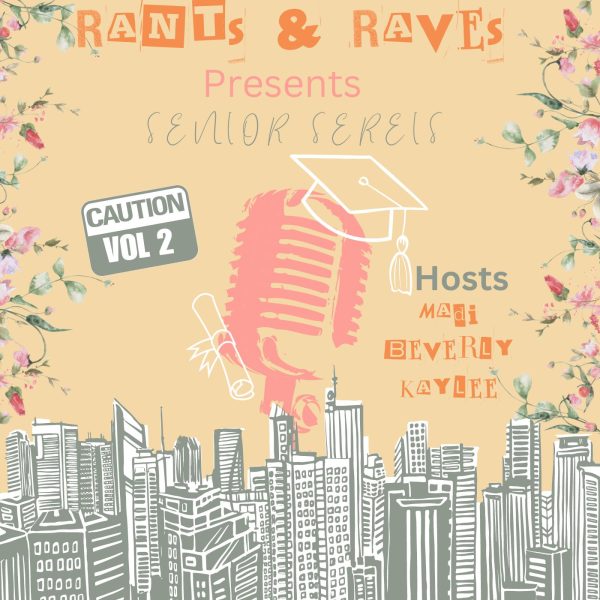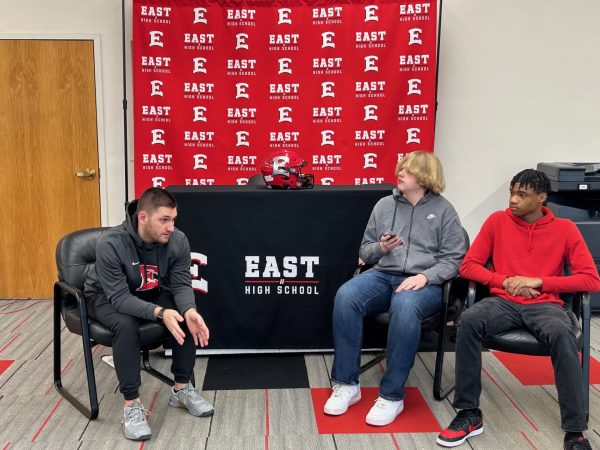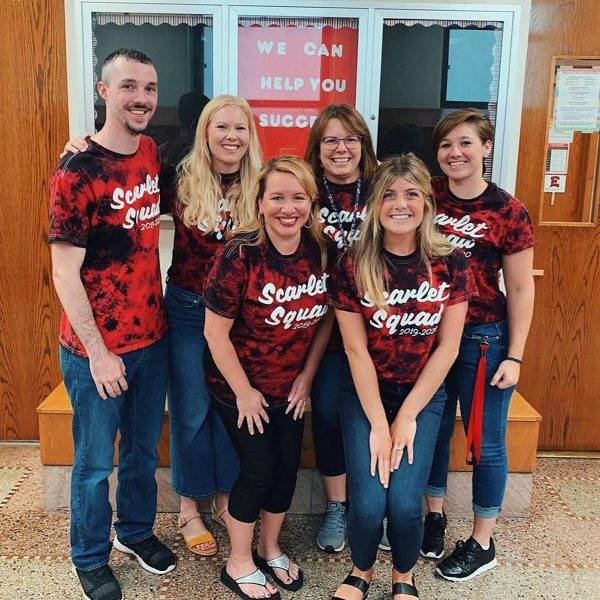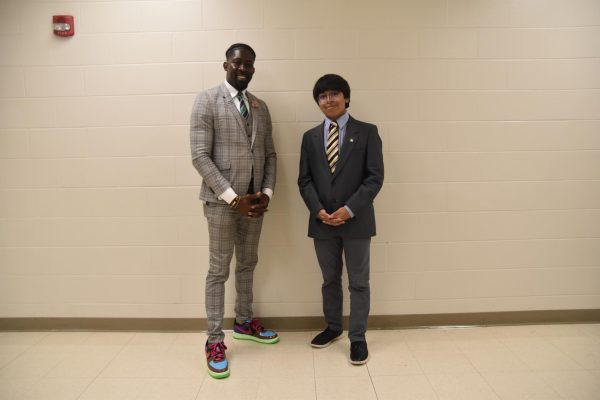Dear America: Papers or not, I am human
Undocumented students and teachers at East High speak on their experiences in America
March 4, 2020
11.1 million people are undocumented immigrants living in the United States. 4.4 million of those undocumented immigrants are students, all under the age of 25. To understand what undocumented students and teachers are going through, you must put yourself in their shoes. The majority of undocumented students and teachers in the U.S. struggle to thrive in today’s society. A difference in opportunities include not being able to get a work or driver’s permit, buy a house, or even get scholarships to help pay for college. Being an undocumented student in the U.S. can be very stressful. They face barriers for being ‘illegal’, whereas their peers who were born in the U.S. have unlimited opportunity.
“They expect us to be really good kids, because if we are not, they assume that we are taking advantage of the opportunity that our parents gave us. I wanted to get my driver’s license, I couldn’t. I wanted to get my worker’s permit, I couldn’t. I wanted to get certain programs and scholarships, I couldn’t. I feel like an outcast,” an anonymous undocumented student said.
Students who are in the U.S. ‘illegally’ struggle with the constant back lash of people who feel negatively about undocumented people in the United States. However, statistics show that undocumented students are usually higher achieving and more successful than the average student. According to the University of California’s Center for Labor and Education Research, many undocumented students are high performers. While being undocumented, students still manage to be athletes, honor students and leaders in their schools and communities.
“I would love to become a pediatrician or a lawyer. It angers me how so many students don’t take advantage of the opportunities that they have. While I am over here working my butt off as an A student, I could end up at the same level as a student with all Cs. Luckily, I have a refuge, and that’s God, who helps me understand everything is in control,” an anonymous undocumented student said.
Students who have an undocumented status go through the worries of not knowing what to do in the future. With no help on where to go or what to do, students are left in a hole, not knowing how to climb up. Educational Talent Search, or ETS for short, is a federally funded program that helps high school students in their search for post-secondary education. ETS, Science Bound, Upward Bound and excursions to different states for internship experiences are denied to undocumented students due to students not having a passport or a Social Security number. This can make the student feel sad, mad, and even unhopeful. Even if the student is a hard worker, they cannot make a living in this country if they do not have legal documents, proving that they can legally work. According to the Department of Education, less than 10 percent of undocumented students that graduate high school pursue a higher education.
“Your value as a person does not depend on a piece of paper.”
— An immigrant DMPS educator
“Trata de ponerte en los zapatos de la otra persona.”
— An immigrant DMPS educator
“I have tried to enter into many programs and activities, but not having papers or a Social Security has been an obstacle. For a while, I always thought that I could never go to college or go out of state…But I found out that if I do not get married and obtain papers through my wife, I cannot legally be paid to work in this country, even though I have the degree…All of my hard work would be for nothing,” an anonymous undocumented student said.
While being an undocumented student in America is difficult, being an immigrant teacher trying to make a living for themselves and their family comes with its difficulties and trials as well. According to an article written by the National Immigration Forum, 9,000 teachers across the United States are protected by DACA, which stands for Deferred Action for Childhood Arrivals. This organization protects immigrants who came to America at an early age and helps them obtain citizenship. However, it does not only help children and teenagers. Adults are supported as well.
“It can be an obstacle as far as advancing in my career. There are certain jobs that require you to be a citizen in order to qualify. Even though you have the skills needed and experience, the fact that you are not a citizen just stops you,” an immigrant DMPS educator said.
This East High staff member goes on to explain the lack of compassion for undocumented people in today’s American society.
“I don’t think people understand what it means to be undocumented. Weather they are students, teachers, or any other person, we can’t just go and apply and get a Social Security number. I have gotten those comments before, but the reality is that there is a waiting list of 15, 20 years or so. It is just a lack of understanding,” an immigrant DMPS educator said.
There is a rhetoric that implies that immigrants are stealing jobs from American workers. The reality is that most of these jobs were never performed by Americans in the first place. Blue collar jobs are those of construction and craft, usually given to people that must get their hands dirty. According to The Brookings Institution, immigrants have boosted economic growth in the U.S. by having occupations such as farming to janitorial services.
“I feel like so many people assume that since we are here, we are stealing jobs…Even facts and statistics show that immigrants gain employment on jobs that are not usually taken by citizens. People get jealous because we are making a living, but this also shows them that we can make a living in this country as well,” an immigrant DMPS educator said.
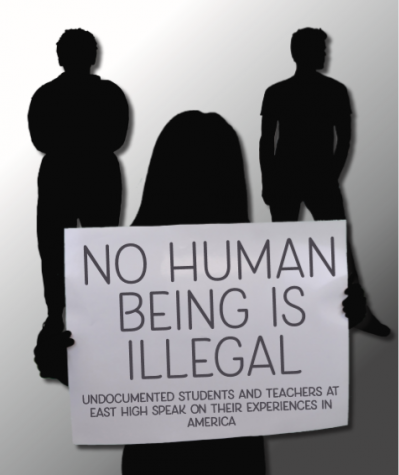
Being undocumented can motivate one to reach for the stars as if there are no borders. While there are people who pity themselves due to not having documentation, there are those who do not let their status stop them from achieving greatness and making their parents, friends and family proud.
“You learn to surf the waves. The fact that you don’t have a piece of paper with a nine-digit number doesn’t mean that don’t have goals, ambitions or dreams. We are still individuals that want to be successful and do great things. But it is very frustrating to see that you want to do great things, y tienes ganas, but there is just this thing, stopping you from doing that,” an immigrant DMPS educator said.
Most find it very comforting to know that undocumented individuals have each other’s back. The majority agree that whatever happens in the future will not determine nor destroy Latino heritage.
“Don’t give up. There is going to be a lot of negativity around you. There are going to be times that you want to give up, but just because it is harder for us, doesn’t mean that it is impossible. It will just take us a little longer, but it all talks about how persistent we are. Tenemos mucha perseverancia, y tenemos muchas ganas. Creo que una persona que logra sus metas, al pesar de tener tantas dificultades va disfrutar el doble cuando llege a su destino,” an immigrant DMPS educator said.
This immigrant DMPS educator gives a message and piece of advice to other teachers and staff who deal with and associate with undocumented students.
“They are human, just like you. Stay informed. Know how to talk to someone who is in a difficult situation. If you don’t know anything, and all you want to do is support your students, the best you can do is educate yourself. Ask in your network, ask professionals about how to help your students. For example, if you don’t know whether a student can attend college if they don’t have a Social Security, then go ask, so you can talk to your kids. Guide them and try to give them the help and support they need. Be there and listen to them,” an immigrant DMPS educator said.
Most undocumented students came to America at an early age, with no decision to stay or go from their home country. They eventually learned fluent English, achieved amazing grades, but have gotten shot down because of their roots. They had no choice as an unaware child. They struggle to see fault in making a path in the world they were put in
“I would invite anyone whoever reads, to try and be respectful of other’s opinions and try to learn from others. Trata de ponerte en los sapatos de la otra persona,” an immigrant DMPS educator said.

